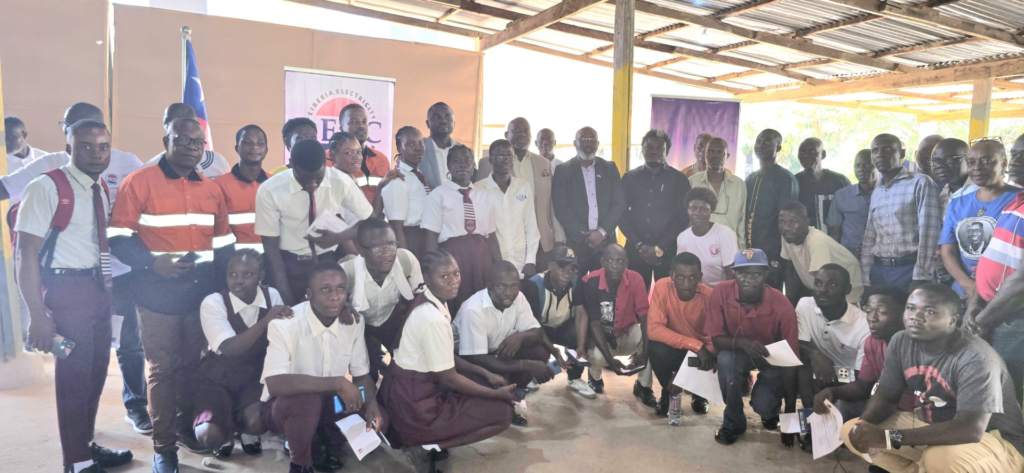The Liberia Electricity Regulatory Commission (LERC) is currently embroiled in a complex tariff review process following a request for reconsideration filed by Jungle Energy Power (JEP), a key electricity provider in the country. This reconsideration plea comes on the heels of recent public hearings held in Nimba and Bong counties, designed to gauge public sentiment on proposed tariff adjustments. JEP’s request centers around a recent rise in the cost of electricity imported from Compagnie Ivoirienne d’Electricité (CIE), which has increased from $0.15 to $0.16 per kilowatt-hour (kWh) since January 2025. This external price hike forms the basis of JEP’s argument for a corresponding increase in the consumer tariff.
JEP’s General Manager, Aleyou Keita, has proposed several options for mitigating the impact of the increased import cost. His primary suggestion involves a direct pass-through to the consumer, raising the tariff from $0.22 to $0.24 per kWh. Alternatively, he has suggested the elimination of the Liberia Electricity Corporation’s (LEC) $0.001 administrative charge, arguing that this would streamline operations and potentially offset the increased import cost. A third proposal involves government intervention, requesting that either the Liberian government or LEC subsidize the purchase price from CIE, reducing it to $0.12 per kWh. This would allow the tariff to remain at a more manageable $0.23 per kWh with a fixed charge of $2.00. These proposals are now under the LERC’s careful consideration.
The public hearings held in Nimba and Bong Counties played a crucial role in this unfolding tariff saga. LERC Chairman, Hon. Claude J. Katta, emphasized that these hearings are a vital part of the regulatory process, providing a platform for transparency and public participation. These forums allow stakeholders, including local authorities, businesses, citizens, and civil society organizations, to voice their concerns and perspectives on proposed tariff changes. The hearings were well-attended, signifying the public’s keen interest in the affordability and accessibility of electricity. This participatory approach ensures that any tariff adjustments are made with a full understanding of their potential impact on the communities served.
The backdrop to this current review is a recent tariff adjustment announced by LERC in December 2024. This previous adjustment saw a decrease in the energy charge from $0.25 to $0.22 per kWh, coupled with a new monthly fixed charge of $1.25. Furthermore, the connection charge for new customers was significantly reduced from $100 to $40, aiming to expand access to the electricity grid. This reduction aimed to make electricity more affordable and accessible, particularly for new connections, with the cost of connection materials subsidized and recouped through the revised tariff structure. JEP’s request for reconsideration effectively reopens the discussion on the tariff structure, adding another layer of complexity to the regulatory process.
JEP’s argument for a tariff increase rests primarily on the increased cost of imported electricity. The company contends that absorbing this increased cost without a corresponding tariff adjustment would negatively impact its financial viability and its ability to continue providing reliable service. The proposed solutions, ranging from a direct tariff increase to government subsidies, reflect the company’s efforts to balance its operational costs with the need to maintain affordable electricity for consumers. The LERC now faces the challenging task of weighing these competing interests and arriving at a decision that is both economically sound and socially responsible.
The LERC’s decision on JEP’s request for reconsideration is highly anticipated and will have significant implications for both the energy sector and the Liberian public. The deliberations will involve careful consideration of JEP’s arguments, public input gathered during the hearings, and the broader economic context. The Commission’s final decision is expected in March 2025 and the new tariff, if approved, will be in effect from March 2025 to February 2029. This decision will not only determine the cost of electricity for Liberian consumers but will also send a strong signal about the regulatory environment and the balance between the interests of energy providers and the affordability of essential services for the public. The ongoing dialogue between LERC, JEP, and the public underscores the dynamic and evolving nature of the energy sector in Liberia.














